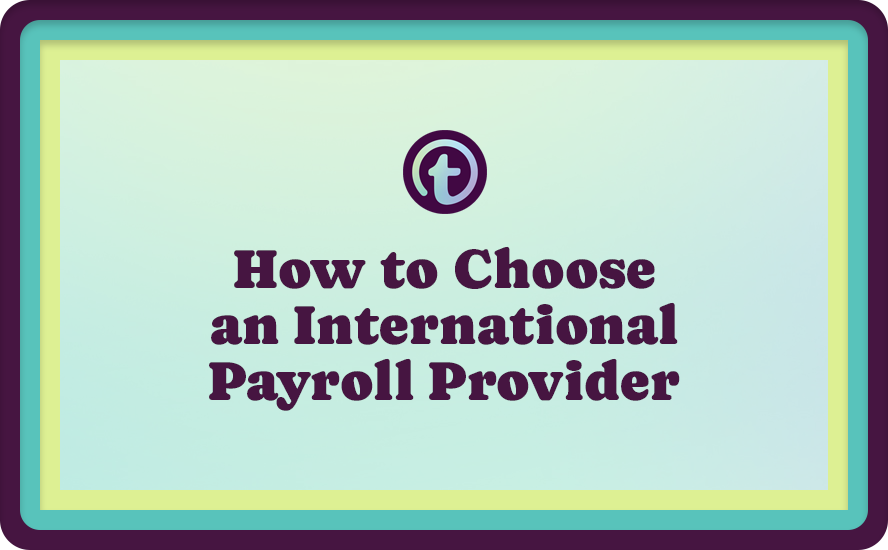So you’ve hired your first international team members. Congratulations. Now for the hard part: paying them. On time. In the correct local currency. While withholding the exact right amount for taxes and social contributions, all in accordance with labor laws you probably can’t read. If you think your domestic payroll software can handle this, you’re in for a world of pain.
Choosing a partner to handle your global payroll isn’t like picking a new piece of software. It’s like choosing the master plumber for your entire global operation. One wrong connection, one leaky pipe, and you don’t just have a mess. You have a catastrophic flood of compliance fines, angry employees, and legal disasters. You need a partner, not just a processor.
Not All “Global Payroll” Is Created Equal
The market is flooded with companies calling themselves “global payroll providers.” Most of them are just middlemen, or “aggregators,” who stitch together a patchwork of local, third-party accountants in each country. This model is a house of cards. Every handoff is a potential point of failure, a security risk, and a layer of hidden fees.
A truly elite provider doesn’t just pass the buck. They take full ownership. To make the right choice, you need to stop looking at feature lists and start asking the hard questions that separate the professionals from the pretenders.
Employer of Record vs. Contractor: The Definitive Guide
The Four Questions You Must Ask Any Provider
Before you sign any contract, demand a straight answer to these four questions. The future of your global operation depends on it.
1. Are You a Payroll Aggregator or Do You Own Your Entities?
This is the most important question. Ask them directly: “When I hire someone in Kazakhstan, who is the legal entity employing them?” If the answer involves a “local partner” or a network of third parties, you’re talking to an aggregator. The superior model is a direct Employer of Record (EOR) like Truss, which has its own legal entity in the country. This means one point of contact, one contract, total accountability, and no excuses.
2. How Do You Guarantee Local Tax and Labor Law Compliance?

A generic “we stay up to date” answer is a massive red flag. A professional partner should have on-the-ground legal and HR experts who live and breathe the local laws. They should be able to explain the specific tax withholding requirements, mandatory benefits, and termination procedures in that country. An EOR takes on 100% of the legal liability for compliance. An aggregator often leaves you holding the bag when their local partner makes a mistake.
3. What’s Included Beyond the Paycheck?
Just processing payroll isn’t enough. What about offering competitive local health benefits? Managing paid time off in accordance with local laws? Handling the complexities of onboarding and offboarding? A simple payroll processor leaves all of this in your lap. A true global employment partner manages the entire employee lifecycle. It’s the difference between a service that just moves money and a partner that manages your people.
4. What Is the Real, All-In Cost?
Demand absolute transparency. Many providers lure you in with a low base fee, then bury you in hidden costs: currency conversion markups, wire transfer fees, charges for off-cycle payments, and extra support costs. A trustworthy partner will give you a simple, flat, all-inclusive price per employee. There should be no surprises.
Read More: Grow Your Tech Team Globally at a Fraction of the Cost
Choose a Partner, Not a Processor
Ultimately, you’ll discover that what you need isn’t just an international payroll provider. You need a strategic partner for global employment. You need an Employer of Record that offers a seamless, compliant, and fully-managed solution.
Stop looking for a simple processor and start looking for a real partner. Contact Truss to see how a true EOR simplifies global payroll and employment.

